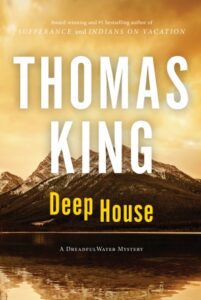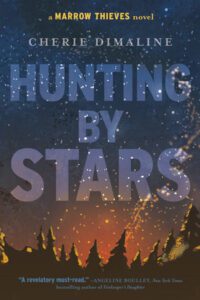National Indigenous Peoples Month
“Without truth, justice, and healing, there can be no genuine reconciliation” – Truth and Reconciliation Commission of Canada (TRC 2015, p. 12).
Canadians, in their rush to reconcile, have neglected or avoided the truth (Justice & Carleton 2021).
The truth is that the racist and colonial policies that led to the creation of the residential school system continue to harm Indigenous People today. These harms did not end when the last residential school closed in 1997 – Indigenous children are still being forcibly removed from their families and placed with non-Indigenous families at an alarming rate. The name of the system just changed – foster care has become the “new residential school system” (Wright 2021). In Manitoba, 90% of the children in care are Indigenous although Indigenous children make up only 7% of the nation’s youth (Stefanson, 2020, p. 74). Last year in Alberta alone, 34 Indigenous children died in care (Bratt 2022).
National Indigenous Peoples Month comes one year after ground-penetrating radar detected the remains of 215 Indigenous children buried near the former Kamloops Indian Residential School. There was a collective hope that these disclosures would prompt Canadians to recognize that our institutions (e.g. schools, hospitals, workplaces) are intentionally designed to oppress, marginalize and erase Indigenous Peoples and cultures from this land. Instead of coming to terms with the cultural genocide that marks our past and our present, some Canadians have begun to deny basic facts about residential schools. Their goal is to silence Indigenous voices and undermine efforts to bring about systemic change. The truth, and Canadians who are willing to do the hard work to learn the truth, are needed now more than ever.
What can I do?
Join us this June as we feature Indigenous voices, stories and lived experiences. You can also attend events or activities that have been organized to celebrate National Indigenous Peoples Day on June 21st or to recognize June as National Indigenous Peoples Month, also known as National Indigenous History Month.
What is happening during National Indigenous Peoples Month at BCIT?
Each week, we will share new resources that you can use to expand your knowledge of Indigenous Peoples, cultures, and perspectives. Each week will have a different theme: Week 1: Read, Week 2: Listen, Week 3: Watch, and Week 4: Act. Our goal this month is to create champions of truth.
We also invite you to spend some time working through BCIT’s Indigenous Awareness course More than 8,000 students, faculty, staff and external participants have enrolled in this course and expanded their knowledge of Indigenous Peoples, Colonization and Decolonization. This free course contains three modules that can be completed online at your own pace. If you finish the course, you will receive a digital badge. To register, simply visit this website
If you ever feel uncertain about the next step in your journey to learn the truth and move forward in a good way, BCIT’s Indigenous Initiatives and Partnerships team is always here to help. We have five user-friendly Indigenous Guides that will help you get started.
You can also check out BCIT’s Library Guide on Indigenous Resources. This guide includes books by Indigenous authors, articles on contemporary issues facing Indigenous communities and links to archival records such as photos, Treaties and other important documents.
References:
Bratt, T. (2022, April 20). New report details record number of children and youth deaths in Alberta government care. CityNews.
Justice, D. H. & Carleton, S. (2021, August 5). Truth before reconciliation: 8 ways to identify and confront Residential School denialism. The Conversation.
Stefanson, H. (2020, March 31). Manitoba Families: Annual Report 2019-2020. Government of Manitoba.
Truth and Reconciliation Commission of Canada (“TRC”). (2015). Honouring the Truth, Reconciling for the Future: Summary of the Final Report of the Truth and Reconciliation Commission of Canada.
Wright, T. (2021, June 4). Foster care is the modern-day residential school system: Inuk MP Mumilaaq Qaqqaq. CBC News.
Week 1: Read (June 6 – 10)
Join us this month as we read three books written by First Nation, Métis and Inuit authors.
Week 2: Listen (June 13-17)
“I see you. I hear you. And I believe you.” – Marie Wilson, Truth and Reconciliation Commissioner
This week we are excited to spotlight podcasts by Indigenous creators and interviews with influential Indigenous leaders, activists, artists, educators, Elders and Survivors.
We encourage you to listen deeply and respectfully to these First Nations, Métis and Inuit People as they share their truths and speak to issues facing Indigenous communities across these lands we now call Canada.
References:
The Quad. (2016, October 27). 7 Thought-Provoking Quotes on Reconciliation from Marie Wilson. University of Alberta. [Digital Publication].
Week 3: Watch (June 20 – 24)
This week we are thrilled to highlight documentaries, short films and animated shorts made by Indigenous artists, sculptures and songs by Coast Salish carvers and Inuit musicians, and interviews with Troy Bird and Dr. Pamela Palmater about the over-representation of Indigenous people in foster care and in prisons.
Each person shares their own truth in their own way. We hope that you approach these videos with a good heart and in a good way. Bring your curiosity and leave your judgment behind.
All the documentaries, films and videos featured this week are freely accessible .
Week 4: Act (June 27 – June 30)
Thank you for joining us during National Indigenous Peoples Month. We hope that you have you have enjoyed reading books by Indigenous authors, listening to podcasts by Indigenous journalists and watching documentaries by Indigenous filmmakers.
This week we will be focusing on specific actions that you can take to position yourself as an authentic ally who works in partnership with Indigenous peoples.
The month of June is drawing to a close, but we encourage you to keep learning about the true history of Canada, dismantling colonial policies and practices and recognizing not only the trauma experienced by Indigenous peoples but also their “infinite capacity for joy” and humour (Robinson, 2022).
References:
Robinson, E. (2022, June 21). Break bread, laugh and learn: How to celebrate National Indigenous Peoples Day. CBC Radio: Unreserved.


